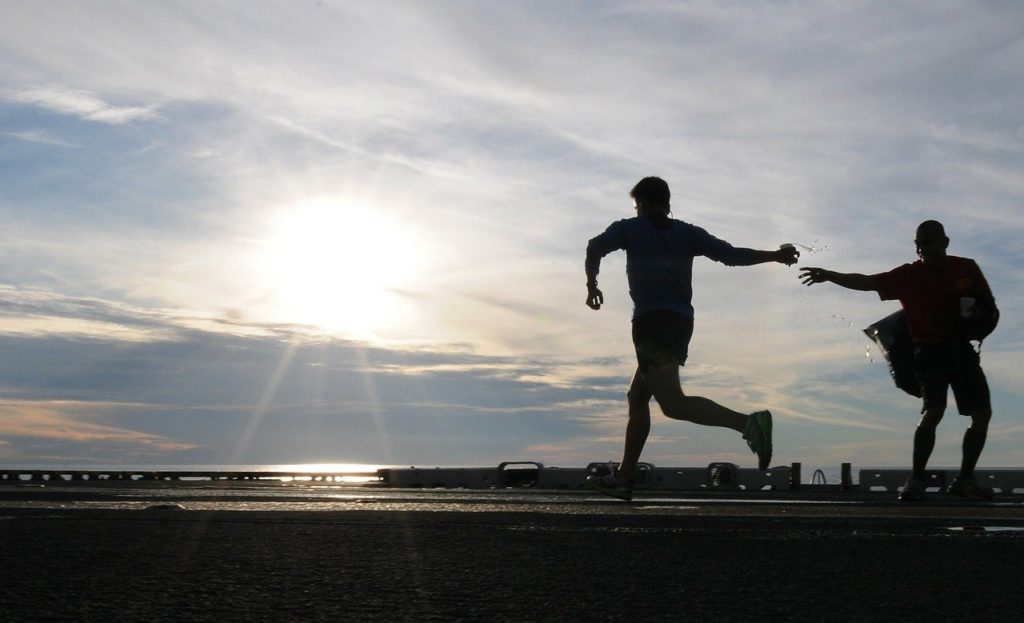The Russian Doping Scandal
I bet many of us have heard about the Russian doping scandal. If not, let me explain it to you in a few words. On November 9, an independent commission set up by the World Anti-Doping Agency confirmed Russian track and field athletes have widely been using performance enhancing drugs and blood doping. All this was encouraged and covered-up by coaches, doctors, and state and sports officials. In result (so far), Russian athletes were suspended from sport by IIAF.
What still remains a question mark, is that will Russian athletes be allowed to compete in the Rio 2016 Olympics. The World Anti-Doping Agency commission wants the Russian athletics federation to be barred from international competition. The International Olympic Committee would also consider barring not only athletes, but also individual coaches and officials from future Olympic Games. There are also concerns about unfair wins by Russian athletes, and whether champions may have their medals withdrawn.

U.S. Olympic Cycling
We all probably also remember the Lance Armstrong doping scandal. Armstrong was accused for engineering one of the most sophisticated doping schemes in sports. In 2012, the U.S. Anti-Doping Agency stripped Armstrong of his seven Tour de France victories and banned him for life from racing. This resulted in all top U.S. men’s cyclists being withdrawn from the 2012 London Olympics. The U.S women’s cycling team – Dotsie Bausch, Sarah Hammer, Jennie Reed, and Lauren Tamayo – remained the only medal hope. However, the women’s team had no hope according to all data available. The U.S. women hadn’t won a track medal in 20 years and they had no assets to go after the podium spot. At least not the traditional way.
The team turned to their own data, measuring every possible thing about their bodies with fitness trackers and any device available. All to enhance their performance. They got Sky Christopherson, a former USA Cycling teammate, to work with them. “The year before, after a decade away from competitive cycling, and after suffering a heart attack scare in December 2009, Christopherson had set a master’s world record, 10.49 seconds, in the 200-meter velodrome sprint. His return to form had been based on a data-driven training approach inspired by Dr. Eric Topol, digital medicine researcher and director of the Scripps Translational Science Institute.”

Data Instead of Doping
Blood analysis found that Hammer had a severe vitamin D deficiency. She started taking supplements and was advised to get outside and get more direct sunlight. DNA testing showed that Bausch, who lacked speed on the track, surprisingly had the sprinter’s gene. Her training was adjusted to leverage that detail. But perhaps more importantly, the knowledge boosted her confidence. And a sleep tracker indicated that Reed needed to get more rest.
The amount of data the team was collecting was overwhelming. They needed help at processing the massive volume of information and searching for connections. Christopherson reached out to Stefan Groschupf at data analytics firm Datameer. With Groschupf’s help they found, for example, that the athletes got more deep sleep when their bodies were at a lower temperature. They also found that more deep sleep translated into more power on the track the following day. Why? Deep sleep is where our bodies release human growth hormone and testosterone naturally, helping the body recover. To enable the athletes to get more deep sleep, they used air conditioning units and water-cooled mattresses. This way they used data to boost those chemicals, instead of drug

In Olympic qualifying nothing seemed to go right, but the team rode the fastest they had ever ridden. And miraculously, they got their game together right before it was too late, and qualified for the final. In the final, though, the British team of Danielle King, Laura Trott, and Joanna Rowsell were too strong. They beat the Americans by more than five seconds. Anyhow, it was a victory for the U.S. team. In just three months they had transformed from Olympic outsiders to silver medalists.
Olympic Athletes + Emfit QS
We at Emfit wanted to solve the problem of tracking health without having to wear anything. We also wanted to make it as simple as possible. The result was Heart-Rate-Variability enabled Emfit QS Sleep Monitor. Today, the device is one of the many that Sky Christopherson is using with Olympic athletes.

Working with Olympic athletes, we use ‘Data not Drugs’ to boost every aspect of athlete health and performance. New technologies are enabling us to help athletes get exciting results, including 5 Olympic medals in the most recent Olympics. Moral and health arguments aside, we believe using data to leverage the natural strengths of our bodies will always win over the long run. Since sleep is foundational to health and performance, it is a focal point of our program and we have used every sensor on the market. The Emfit system is creating new capabilities in understanding sleep both with the goal of improving it, but also using it to better inform training decisions as we moved towards truly individualized training models. The ease of use and accuracy of Emfit is also unprecedented. As a result, the Emfit system is now an integral part of our ‘Data not Drugs’ program as we build a future that uses more data and less drugs, in sport, and hopefully in health.
– Sky Christopherson, World Record Holder and Founder, OAthlete
Athletes have been using doping for a long time. Sometimes, when out of luck, they get caught with serious consequences. That is just what the Russian doping scandal has showed us. The solution to this problem is already available, but not used to its full potential. Modern technology enables us to do things that no one thought were possible. The U.S. cycling team clearly proved this. By using only data, they surprised everybody and broke all expectations. I firmly believe that this is the future of enhancing sports performance. No doping, just data. The greatest thing about it is that it’s 100% legal. Maybe this is something the Russian track and field team should consider, too.
Cheers,
Peppiina

